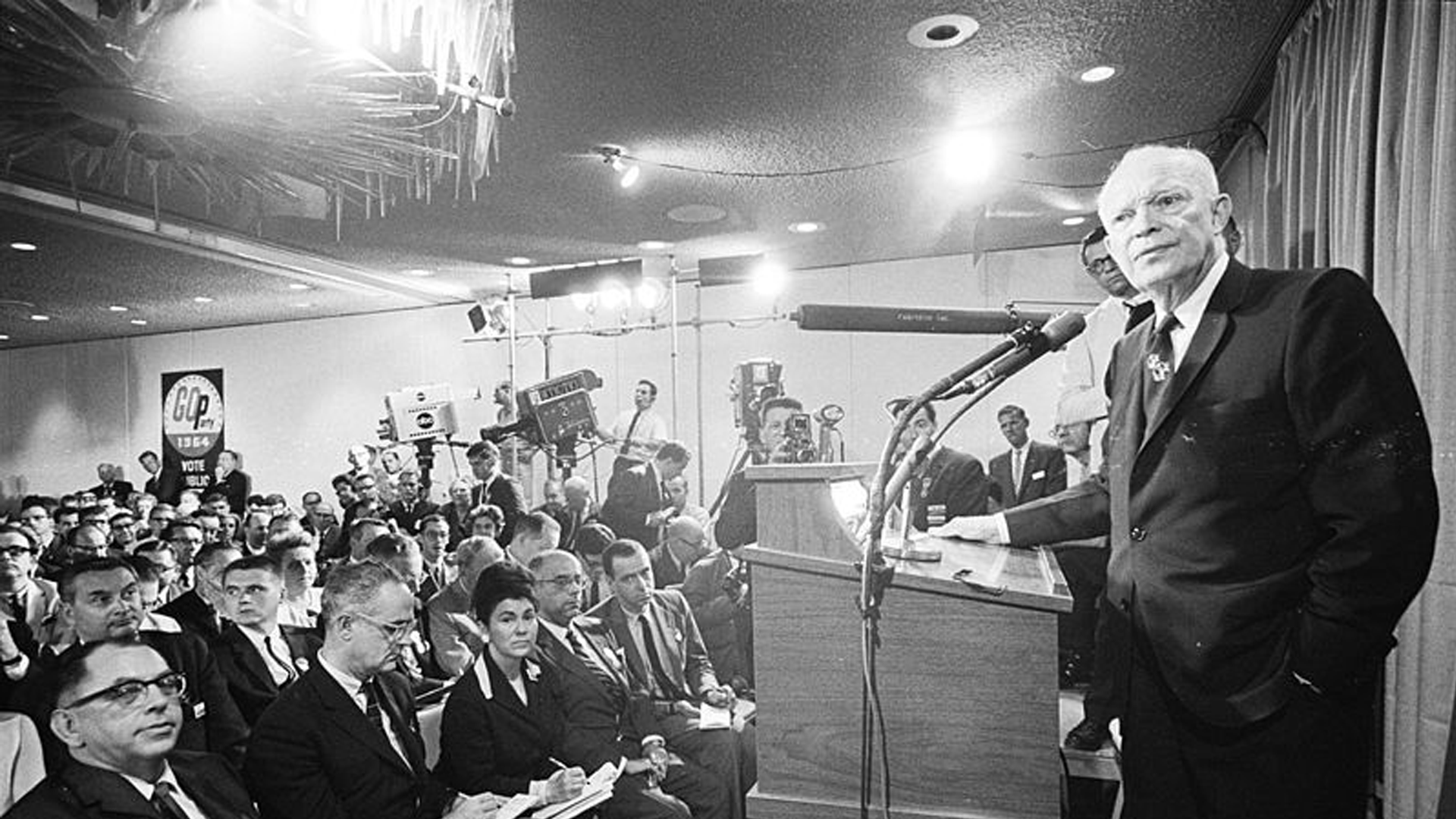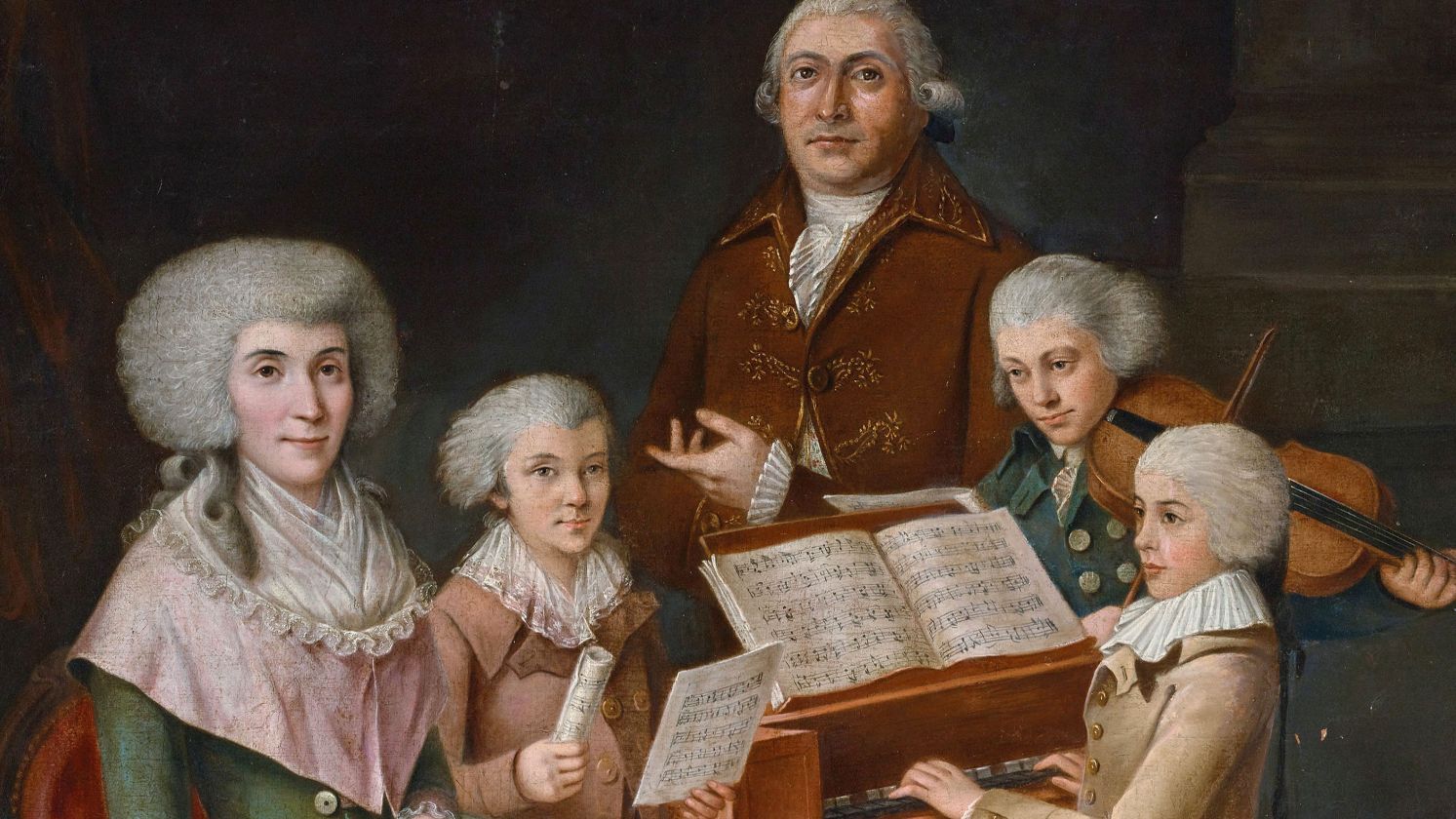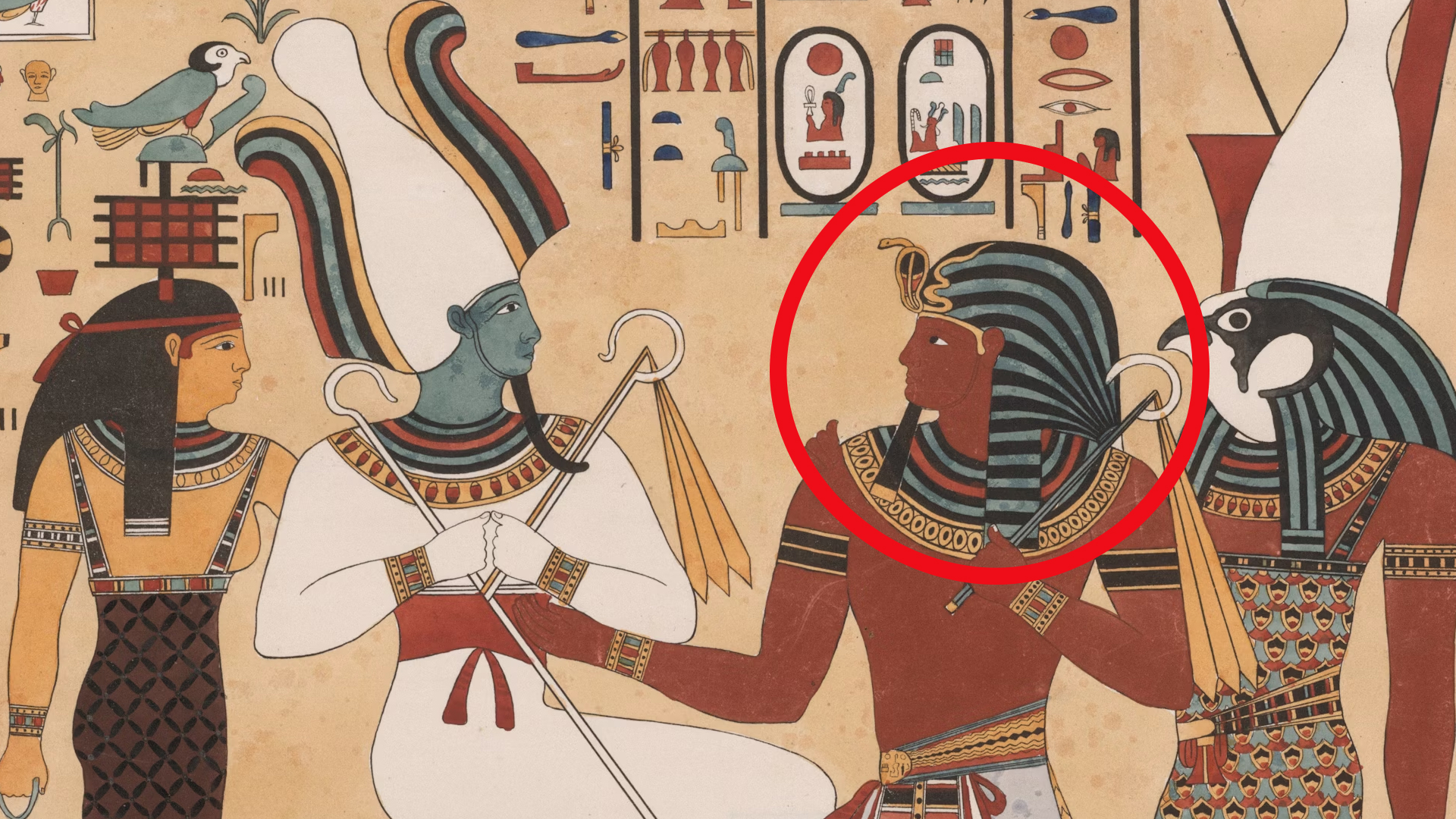Unexpected Impact
These 20 individuals made a decision that completely changed the face of the world. They probably didn’t realize how significant their choice was until later on. Regardless, it goes to show you how crossroads and last-minute thinking can have major ramifications. With that in mind, here are 20 of the most impactful decisions ever made.
1. Almost Nuclear Destruction
During a Cold War submarine standoff, Vasili Alexandrovich Arkhipov refused to order the launch of a 10-kiloton nuclear torpedo after believing WW3 had started when his sub was depth-charged. Commanding officers wanted to retaliate but Arkhipov would not allow the nuke to be launched. Arkhipov's refusal and calm reasoning prevented nuclear disaster, saving the world from untold destruction.
2. Ardennes
In World War II, the French prime minister ignored reconnaissance reports of a huge German buildup of forces in the Ardennes and failed to take aerial advantage of the exposed column. German general Heinz Guderian disobeyed orders to wait and instead rushed his armored forces through the Ardennes to the North Sea, resulting in the swift fall of Paris. If Guderian had waited, the Allies may have had a chance to reorganize and defend the city.
3. The Bontebok Antelope
An individual farmer took a single decision that led to the protection of Bontebok antelope. The man fenced a small herd of only 17 antelope. This is how the extinction of these creatures was averted. The population grew from the initial count, thanks to this action. It took 84 years for the antelope numbers to rise to over 2,500.
4.The Merkits
The Merkit leader had little idea he had changed history when he abducted Borte. Temujin, as of that day, had shown little interest in more than his family's survival. Yet, he would then form a coalition of warring clans, raise an army, and become Genghis Khan. He would then create a period of conquest that destroyed empires and changed the world map.
 Jim Garamone, American Forces Press Service on Wikimedia
Jim Garamone, American Forces Press Service on Wikimedia
5. Jonas Salk
Jonas Salk chose not to patent the polio vaccine. This decision was made in favor of public health instead of personal monetary gain. The lack of patent allowed the vaccine to be sold at low cost and distributed widely and quickly. Millions of lives have been saved around the world as a result of this decision since the 1950s.
6. Nitric Oxide
Fritz Haber developed a way to create ammonia which imitated the way it occurs in nature, but was more amenable to industrial production. This was put into industrial-scale production by BASF and came to be known as the Haber-Bosch process. The process was also instrumental in the agricultural revolution worldwide, for the production of the crops that now feed billions of people.
7. Diocletian
In the early 4th century, the Roman Emperor Diocletian, looking at a failing system in which the government's issued currency had been rendered virtually worthless by overproduction, reformed the tax system to use taxation in the form of labor and goods. To guarantee supplies, the citizens of the empire were required to work at their given profession for life, making them hereditary, and setting the stage for medieval serfdom.
8. Penicillin
Alexander Fleming decided to take a holiday, leaving his lab uncleaned. When he returned, he noticed that mold was preventing the growth of staph bacteria cultures. This became the basis of penicillin, the first antibiotic to be discovered. Fleming's accidental discovery has gone on to save hundreds of millions of lives.
 Calibuon at English Wikibooks, cropped by User:AlanM1 on Wikimedia
Calibuon at English Wikibooks, cropped by User:AlanM1 on Wikimedia
9. Cuban Missile Crisis
The restraint displayed by John F. Kennedy during the Cuban Missile Crisis by refusing to engage in nuclear conflict with the Soviet Union is one of the most important decisions of the 20th century. Kennedy's decision to prioritize diplomacy over military action likely saved millions of lives by averting a full-scale nuclear war. The Cuban Missile Crisis is a prime example of how clear-headedness in a moment of great tension and potential disaster has helped to avert it.
10. Rejecting Hitler’s Application
Hitler was rejected from the Vienna Academy of Fine Arts. This is one of the most important events of the last century. If this hadn't happened, the world would be very different. The German would have led a happy life in another country and World War 2 wouldn't have happened. Because of one single decision, over millions of people were impacted.
11. Philip of Macedonia
Philip II of Macedon decided to invade Persia when his power was secure and his army thoroughly reorganized with new tactics and equipment. Philip planned to free the Greek cities from Persian rule and sent his army into Asia but died before he could personally lead the invasion. The army was greatly disheartened, until Philip's son Alexander, an unusually able ruler, succeeded him.
 Unknown artistUnknown artist on Wikimedia
Unknown artistUnknown artist on Wikimedia
12. Tokugawa and Nobunaga
In the Sengoku Jidai, Period of Warring States, Japan was in chaos with many civil wars. In the midst of the confusion and violence, Oda Nobunaga and Tokugawa Ieyasu, two mighty warlords, decided to trust and support each other. This trust eventually led to the unified and powerful military government in Japan. The trust between these two men signaled the start of a new era in Japanese history.
 狩野宗秀 (Kanō Sōshū, 1551 - 1601) on Wikimedia
狩野宗秀 (Kanō Sōshū, 1551 - 1601) on Wikimedia
13. George Washington
George Washington's refusal of the crown after the American Revolution was a pivotal moment in the nation's history. By declining the offer of kingship, he set a precedent for republican leadership and peaceful transition of power. Washington's choice influenced the development of the United States' democratic principles and commitment to limited government.
14. Franz Ferdinand
Gavrilo Princip eliminated Archduke Franz Ferdinand in 1914, setting off World War I. His actions helped ignite alliances and conflicts that dramatically altered the 20th-century geopolitical order. Princip’s choice arguably made him the most historically significant person of the past century.
15. Crossing the Rubicon
Julius Caesar crossing the Rubicon River initiated the Roman Civil War and the end of the Roman Republic. This led to the change from a republic to an empire. It had vast effects on the future of Western civilization and a cultural impact that endures today.
16. Queen Isabella and Columbus
One of the most important moments in history was Queen Isabella of Spain's choice in 1492 to sponsor the voyage of Christopher Columbus. Her decision to finance his journey made it possible for Eastern and Western Hemispheres to meet. If Isabella had not chosen Columbus, it is likely that the two hemispheres would have been united some twenty years later.
17. James Stockdale
Admiral James Stockdale, an American who was held prisoner for seven years in the Hanoi Hilton, would intentionally injure himself in an effort to prevent his captors from using him as a propaganda tool in Viet Cong disclaimers of prisoner abuse. Stockdale bit into his cheek so hard that the North Vietnamese could not parade an unharmed prisoner in front of news crews. This act of defiance reportedly improved conditions for POWs at the hands of his captors.
 U.S. Navy Photo by Journalist 1st Class Rick Doyle on Wikimedia
U.S. Navy Photo by Journalist 1st Class Rick Doyle on Wikimedia
18. Queen Elizabeth
Queen Elizabeth I challenged gender norms by confidently identifying as a woman in power when others were against female rule. In her 1588 speech at Tilbury, she announced she had "the heart and stomach of a king" and would lead her armies personally against the Spanish Armada if needed. Her courageous leadership led to England's victory and established her as one of history's greatest leaders.
 Unidentified painter on Wikimedia
Unidentified painter on Wikimedia
19. Rosa Parks
Rosa Parks, a seamstress in Montgomery, Alabama, defied segregation laws in 1955 by refusing to give up her bus seat to white passengers. Her arrest led to the Montgomery bus boycott, a significant event in the civil rights movement. Parks’ brave act turned her into a symbol of resistance and fueled the fight for racial equality across the nation.
 Lieske Leunissen-Ritzen on Wikimedia
Lieske Leunissen-Ritzen on Wikimedia
20. I Have a Dream
At the 1963 March on Washington, Martin Luther King Jr. did not actually plan to say "I Have a Dream" but rather improvised it on the spot after gospel singer Mahalia Jackson shouted "Tell 'em about the dream, Martin!" from the crowd. King, rather than finishing his prepared remarks, extemporized on having a "dream" one day that his children would be judged by their character and not by the color of their skin. This quickly became the most memorable part of the march and a pivotal moment in the Civil Rights movement that influenced the next generations.
KEEP ON READING

20 Important Names From World War II You Should Know
Key Players From World War II (For Good or Bad).…
By Cathy Liu Nov 7, 2024
20 Of Our Favorite Space Theories Before Modern Science
For A Time, We Were The Centre Of The Universe.…
By Breanna Schnurr Oct 15, 2025
The Musical Prodigy: 10 Fascinating Facts About Mozart & 10…
Secrets Behind the Symphony. Wolfgang Amadeus Mozart remains one of…
By Chase Wexler May 5, 2025
The Mysterious "Sea People" Who Collapsed Civilization
3,200 years ago, Bronze Age civilization in the Mediterranean suddenly…
By Robbie Woods Mar 18, 2025
20 Inventors Who Despised Their Creations
Made It… Then Hated It. Inventors often dream big, but…
By Chase Wexler Aug 8, 2025
20 Incredible Items In The British Museum People Say Were…
Mystery In History. The mighty halls of the British Museum…
By Chase Wexler Sep 8, 2025














